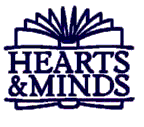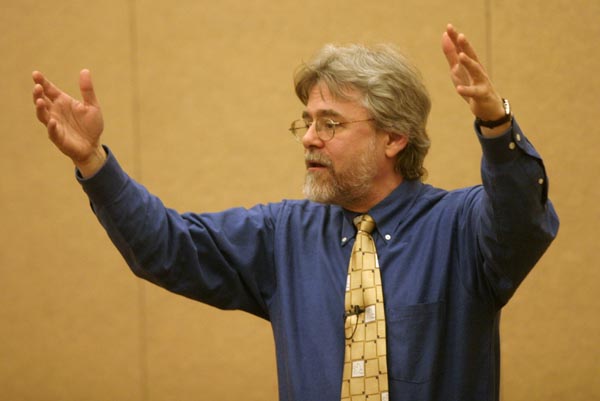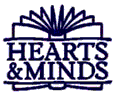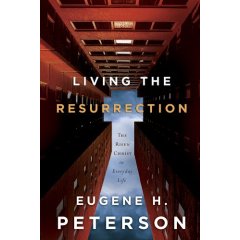Good Monsters

We've been out on the road selling books at events so much lately that the boxes we bring back have piled up in the garage and the store's stock room and even our dining and living room. We have stuff scattered here and there, too much of a lot, and yet we're missing things; general chaos rules around here, usually, and we're in a hard season. Beth has been sick with vertigo and hearing loss (thanks for praying, you faithful friends) and it has been tricky, with no small amount of anxiety from yours truly.
Now, I've got to pick, pull, pack, and lug boxes and boxes of books from these crazy overstock storage places, and the store itself, for an upcoming gig...been working, finally, for hours and hours at it.
And so, my old love for music comes back, cranking up the CD while in the stockroom. I listen to music less than I used to, although my favorites still mean a lot to me----VOL and Bill Mallonee, Bruce Cockburn, Brooks Williams, Nanci Griffith, Mark Heard, U2 (we carried 'em when we opened in 82!) The Band (order the new tribute album from us, for sheer fun and some very moving renditions) and, always, Jackson Browne (do you know the project he did, Some Bridges, with a very funky black gospel choir, Fred Martin and the Levite Camp? Wow!) I listen to mostly classical when I can. In the store we play baroque and Bach and Handel and Windham Hill and tons of Irish fiddle tunes, and solo acoustic guitar discs.
But the last few days, for my hours of work in the book cellar--that is supposed to sound like wine cellar, or maybe bookseller---I put the player on repeat, and listened to the same wonderful album over and over. It was acclaimed as extraordinary and historic by CCM magazine when it came out, but, to be honest, I'm a bit jaded about that whole scene, so not sure what that meant. I listened to it a few times this fall, liked it, but didn't get hooked, at first. I was still enjoying their fine acoustic hymns album, Redemption Songs and the last few by Patty Griffith. And Indeliable Grace.
Anyway, I respect, really, really respect, these guys for several important reasons----their thoughtful approach to culture, their humilty, their living into their social obligations, their artistry, their reading habits (and because they thank two of my best buds on the planet, Ken Heffner and Steve Garber, in the liner notes.) But there are artists I respect, but don't listen to much. I've enjoyed these fellas' work from the very first day the first album came out, and have promoted them in the store and have listened to all their stuff, often. For whatever reason, I'm just slow on the take on this one.
But, I have finally realized, Good Monsters, by Dove and Grammy award winners, Jars of Clay, is stunning. I can't stop listening to it, over and over. Every song is musically rich, grabbing me, now that I've allowed myself to pay attention. There is a progression to the songs, they move towards some kind of climax. The upbeat, driving reminder that I am dead, needing to be a new man, gets me every time; I repeated that song a dozen times. (Yes, I've been book unpacking, packing and repacking a lot.) And "Oh My God" ends up in a passionate and devestating crescendo.
The song "Light Makes Heat" with the African Children's Choir doing some moody background work is amazing; lyrically allusive, but surely emerging from Jars' important African blood:water mission work. What a song!
I am exhausted, from the book work, the choosing and studying and praying and thinking about the past book shows and the upcoming trips and set-ups---my own little bit of preformance art, but also from the carthatic experience of allowing this music to wash over me and shape me and move me. Thanks, Jar guys.
Here is an excellent piece, well written and insightful, about the band, written by Mark Joseph a few years back, at NRO. One of the great reviews of Good Monsters which says it is their best album yet, and which plumbs the universal themes of struggling with depravity and good intentions and the need for redemption which it musically presents, can be found here, written by Tony Shore at HM. Read the posted reply, too, by "Ryan" which has a clear understanding of the themes of the record. And, for a very intelligent review, from an outpost that doesn't suffer fools, or treat faith-filled albums with kid gloves, read here.
I offer these links because at this late hour, even after listening and enjoying and even crying through this remarkable pop album, I don't quite know how to say it any better than these good reviewers. Check 'em out. Or mess around the Jars website----the creative videos are pretty amazing, and the one for Work just won a prominent award last night.
Jars of Clay
GOOD MONSTERS
$5.00 off
regularly $17.98
now $12.98
read@heartsandmindsbooks.com or 717.146.3333 or here











